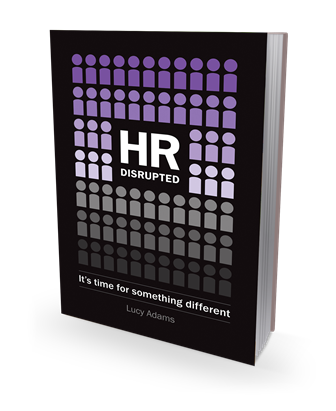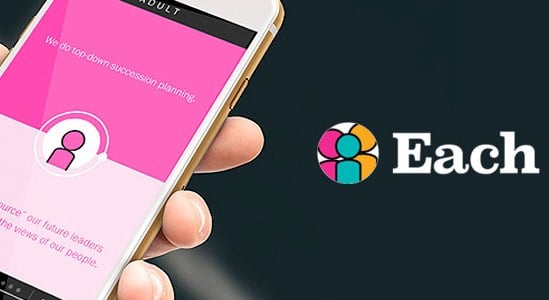If you’re in HR, then I’m sure you experience those awful moments when you question whether the processes you and your team have worked so hard to create are actually delivering results. Appraisal schemes, succession plans, talent management processes, leadership competency frameworks – so many processes, so much work, so little apparent impact. But when you’re working long hours and dealing with yet another operational crisis, it’s hard to take a step back and question the accepted HR wisdom. Only when I left frontline HR work did I have the headspace and time to do that. Only when I left corporate life was I able to start to look under the HR bonnet and began to realise that so much of what we do in HR is not based on how human beings actually think, feel, behave, etc and that our processes are fundamentally flawed. It was a succession of painful lightbulb moments that made me want to create Disruptive HR in the first place. There is so much brilliant research out there now that shows us how people actually learn, receive information, are intrinsically motivated, feel valued and so on. Maybe, like me, you are a fan of Carol Dweck on how we learn,Dan Pink on reward and motivation, David Rock on change and performance management? I wanted to find new ways of incorporating this human insight and understanding into HR. The exciting news is that many progressive companies are already doing things differently. Instead of focusing on creating HR processes that are valued because they’re scalable, monitorable and cost effective, there are companies who planting the human being firmly at the core of what they do in HR.
Here are just a few examples:
– We know that human beings typically forget around 80% of what they have learned through a development programme within 30 days and so companies are instead using micro-training instead of long development programmes. Getting what people need to learn to them in bite-size chunks, at the point of need.
– We know that categorising human beings through performance ratings both frustrates and de-motivates and so we’re seeing more and more process-lite conversations instead of bureaucratic performance schemes.
– We know that money is rarely the most powerful driver of additional performance and so we’re seeing more and more companies moving to reward frameworks that pay people fairly and provide them with timely additional rewards that actually make people feel special and valued.
If we place the human at the centre of our HR design and implementation, we are likely to have a much greater impact.
Treating people as human beings needs to be extended to our leaders too. The so-called VUCA world means we need our people to work in new ways, with different people, with different technology in new locations. A scary enough ask when you trust the person who’s asking you to do it and yet trust in our leaders is at its lowest at the very point we need it most. The antidote to this seems to be the current annual conference craze for business leaders to have a near emotional breakdown on stage in front of their slightly anxious employees to appear “authentic”. But it’s not really about that is it? It is the simple, human stuff in my experience that is the most powerful. Like a leader I worked with who, having just announced a major re-structure went round to every person’s desk and made himself available all afternoon to take their angst and anger. How different this is to the game of “hunt the executive” I’ve had to play in other organisations when the going gets tough.
It’s also the language we use as leaders that mark us out as either human or corporate automatons. I once got a call from a sub-editor in the newsroom at the BBC who rang to tell me my recent all-staff email was “crap”. I re-read it and he was right. By the time it had been made accurate and press-proof by my colleagues in Comms, Legal and HR, it had been stripped of any humanity or personality. HR can help leaders to have the confidence to rediscover their own “human” language. It can be harder than you’d think. Try and not say words like “dialogue” or “interaction” for a week and you’ll realise that we adopt a language that defines us as corporate and detached – not “real”.
I made a decision when I started doing keynote speeches for clients that I would never use PowerPoint. I wanted to challenge myself to focus on the story, the relationship and the message and I have seen too many conference keynote speeches ruined by an illegible and data filled deck. I am still amazed at how many people say “thank you so much for not using slides” afterwards. Our people aren’t moved by a slide and they can’t engage with a speaker who is looking backwards at the wall trying to remember what he wrote. We know that stories move us and they help us transcend sceptical analysis as we co-create with the story teller. That’s how we talk to our friends and our families and yet as leaders we feel we need to use data to make a compelling case.
It’s the human stuff – humility, showing genuine interest in people and acts of kindness – that builds trust with our people and encourages them to follow us into uncertainty. I believe that HR needs to help leaders with being more human at work. If we can create the environment that gives them the confidence to be themselves, but better, we will build greater levels of trust and engagement.
So, it’s the companies that place the human at the heart of their approach to leadership and HR processes that are finding it easier to cope with the demands of this disrupted world. If you would like to see how “human” your HR is, then why not take our free HR diagnostic?
This blog is the third and final part in the EACH© series – Employees as Adults, Consumers and Human beings. You can read the rest of the series and other blogs on the latest HR topics here.
Why not get our book “HR Disrupted” and find out how to make your HR more human? Click here to order.

Get even more Disruptive HR content and join our Club – the go-to place for people who want to change HR!
Recent Posts
Lessons from a scandal: Should bonuses be paid for ‘just doing the right thing’?
April 22, 2024The scandal of the Post Office, where managers are being incentivised to help with the public inquiry, begs the question - should we ever pay bonuses just 'for doing the right thing'?
Health and Wellbeing: Less Zoom Yoga, More Trust
April 2, 2024We should question whether our healthy snacks and instructive posters are addressing the real barriers to feeling well. Should HR be the caring parent and provide the right kinds of food, exhortations and education? Or should we look to reduce the things that create the stress in the first place?
How to help your leaders be more curious
March 4, 2024Being curious is good for us and our organisations, but some of us do it less than others. This blog explores how we can help leaders to show more curiosity.
